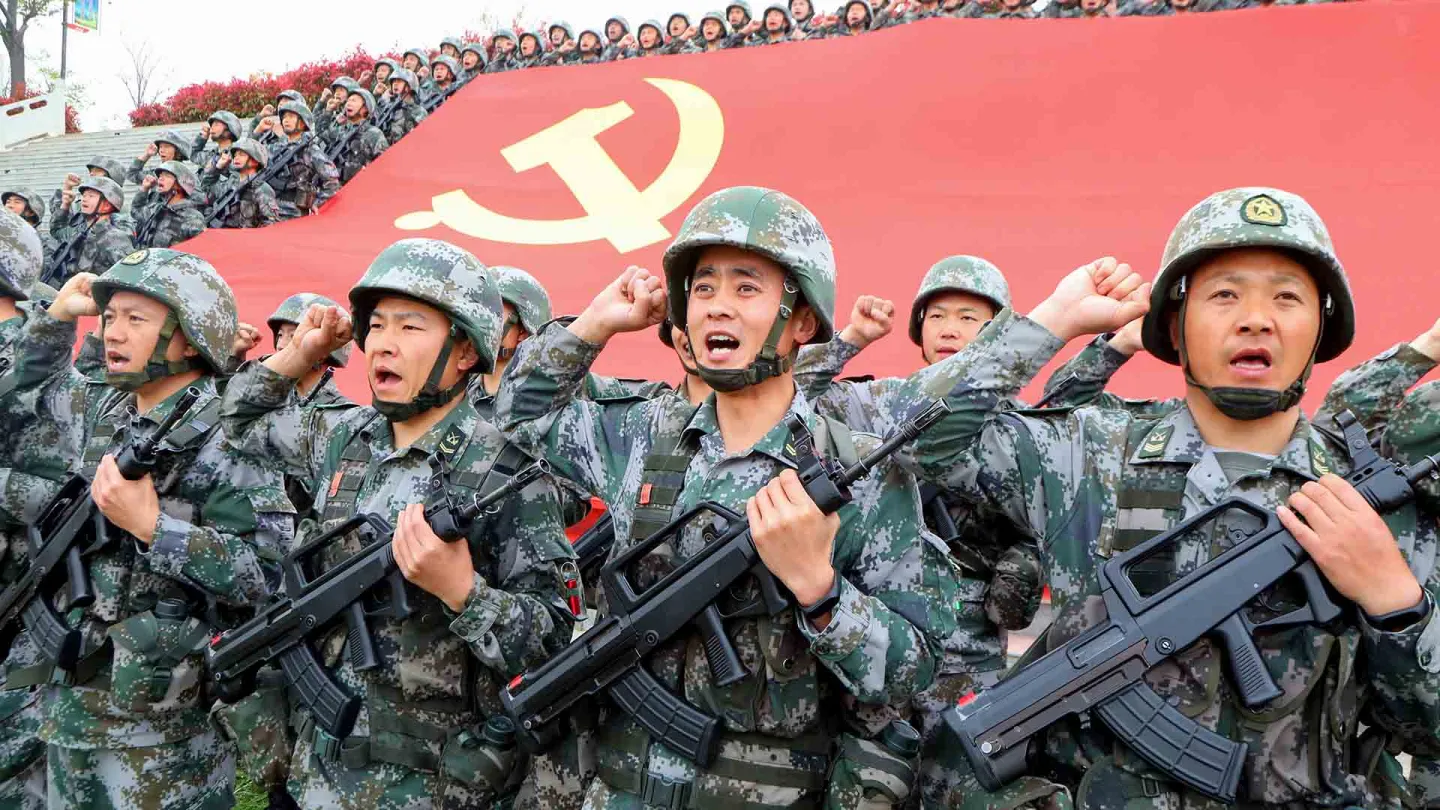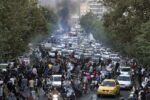China’s military is experiencing unprecedented turmoil, with a series of high-profile corruption investigations that reveal deep-seated institutional weaknesses at the highest levels of the People’s Liberation Army (PLA).
The recent suspension of Defense Minister Dong Jun represents the latest chapter in a dramatic unraveling of military leadership that threatens to undermine President Xi Jinping’s strategic ambitions and China’s military preparedness.
The current crisis is unprecedented in its scope and speed. In a shocking development, China has now investigated three consecutive defense ministers—Wei Fenghe, Li Shangfu, and now Dong Jun—for corruption.
This unprecedented wave of investigations suggests systemic rot within the military’s leadership that goes far beyond isolated incidents of misconduct.
The pattern of removals is particularly striking. Wei Fenghe, who served as defense minister from 2018 to 2023, was the first to fall, expelled from the Chinese Communist Party for “serious violations of discipline”—a euphemism typically used to describe significant corruption.
The ongoing purges raise critical questions about the PLA’s operational integrity, strategic preparedness, and ability to effectively serve China’s national interests.
His successor, Li Shangfu, lasted merely seven months before being removed, disappearing from public view after allegations of accepting substantial bribes and engaging in questionable military procurement practices.
Now, Dong Jun becomes the latest casualty, with US officials confirming an ongoing investigation that further exposes the fragility of China’s military leadership.
The rapid succession of these removals has raised serious questions about the integrity of the PLA’s command structure and Xi Jinping’s ability to maintain control over his most critical institutional power base.
The corruption investigations extend well beyond the defense minister’s office. Nearly 100 senior military officials have been removed or are currently under investigation, creating a climate of fear and uncertainty within the military ranks.
The probe has particularly targeted the Rocket Force, which oversees China’s nuclear arsenal, with multiple senior commanders being purged amid allegations of systematic corruption that potentially compromises national security.
These investigations reveal more than just individual misconduct—they expose fundamental institutional weaknesses in China’s military-political system.
The Central Military Commission, ostensibly the most powerful military body in the country, has been left with rare vacancies and minimal operational stability. Admiral Miao Hua’s suspension from the commission has further destabilized an already fragile leadership structure.
Analysts suggest that Xi Jinping’s anti-corruption drive serves a dual purpose. While ostensibly targeting genuine misconduct, the campaign also functions as a powerful tool for consolidating political control by eliminating potential rivals and creating an atmosphere of intimidation.
However, this strategy may be backfiring, generating more instability than it resolves.
The implications for China’s military capabilities are profound. US intelligence reports suggest that corruption has already resulted in serious operational deficiencies, including malfunctioning equipment and compromised missile systems.
The ongoing investigations potentially undermine the PLA’s readiness at a critical moment, particularly given Xi’s ambitious goal of reunifying Taiwan by 2027.
The timing of these investigations is particularly delicate. China is simultaneously trading complex geopolitical tensions, including heightened military activities around Taiwan and increasing confrontations in the South China Sea. The internal military turmoil could significantly detract from China’s strategic objectives, potentially rendering its military less effective in responding to external challenges.
Moreover, these developments expose the fundamental fragility of China’s institutional governance.
Despite projections of strength and stability, the Chinese system appears increasingly dependent on personalized power dynamics rather than robust, transparent institutional frameworks.
The quick removal of even Xi’s closest allies suggests a system driven more by political survival than genuine institutional integrity.
The economic context further complicates the situation. China is experiencing a period of slowed economic growth, and deteriorating relations with Western countries and neighboring states have created additional pressures.
The rapid destabilization of military leadership could further damage China’s global image and undermine international confidence in its political and military institutions.
Experts have pointedly questioned Xi’s judgment in military appointments. The systemic nature of the problem.
The investigations suggest that corruption is not merely an isolated issue but a deeply embedded challenge within China’s military-political ecosystem.
The suspension of senior military officials, including those previously considered loyal to Xi, indicates a potentially uncontrollable internal dynamic.
Even individuals perceived as close to the president are not immune to investigation, creating an atmosphere of unpredictability and fear that could ultimately weaken, rather than strengthen, institutional cohesion.
The current trajectory suggests a military increasingly paralyzed by internal investigations, political maneuvering, and a crisis of leadership that threatens to undermine China’s strategic ambitions on the global stage.
China security scholar James Char noted the significance of these investigations, suggesting that Xi’s trust in his uniformed subordinates has been consistently misplaced.
If these high-ranking officials are found guilty, it reflects a profound failure of leadership and vetting at the highest levels of the military command.
As these investigations continue, the future of China’s military leadership remains uncertain.
The ongoing purges raise critical questions about the PLA’s operational integrity, strategic preparedness, and ability to effectively serve China’s national interests.
What begins as an anti-corruption campaign risks transforming into a destabilizing force that could significantly undermine China’s military capabilities.
The world watches as China’s most critical institution experiences unprecedented turbulence.
The coming months will be crucial in determining whether Xi Jinping can restore confidence in the military’s leadership or whether these investigations will continue to erode the foundations of China’s military power.
The current trajectory suggests a military increasingly paralyzed by internal investigations, political maneuvering, and a crisis of leadership that threatens to undermine China’s strategic ambitions on the global stage.









Comment